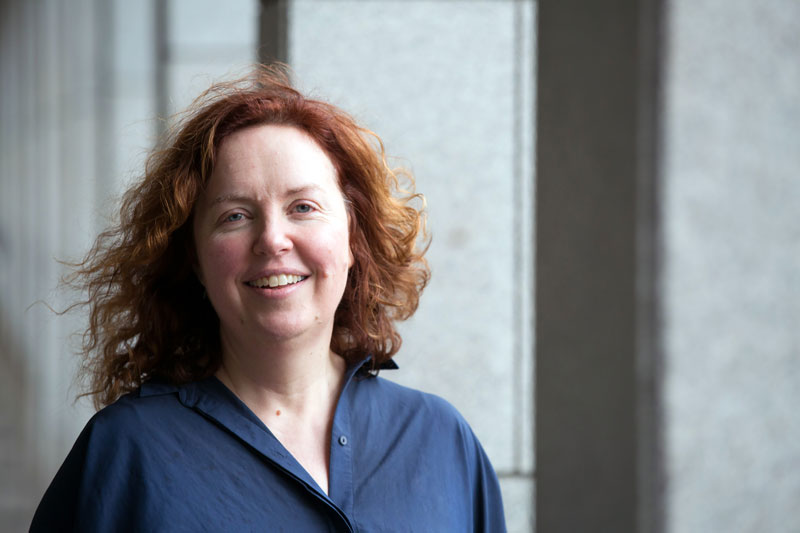Every January for the last number of years, I have had the immense privilege to be a judge at the BT Young Scientist Exhibition. This has allowed me to meet students from all around Ireland and to talk to them about the projects they have been working on. Around 55,000 people visit the exhibition every year. The event attracts wall-to-wall national media attention with dedicated segments on national news broadcasts, front page features in newspapers and appearances by the winners on the Late Late Show.
For one week every January, Ireland “gets” research.
The students seek to make sense of the world around them, to generate new knowledge and to create solutions for many of the problems our society faces. The public intensely engages with the students and their projects. There is an understanding of why research – all research – matters. There is an appreciation that talent needs to be unconstrained and for imaginations to run free.
There is a profound belief that research can help build a better future.
But when the doors close on the exhibition for another year, a disconnect sets in. Those numerous politicians, who flooded social media with proud images of themselves and students from local schools, are nowhere to be found when these same students go on to realise their ambitions and become researchers in our universities. We return to having to constantly explain why research matters, and why it needs sustained, consistent investment. Even more starkly, when it comes to supporting individual talent and imagination, the political system overwhelmingly favours the alignment of research to specific priority areas. Investment in the kind of unfettered unleashing of the imagination that is so valued and encouraged at the BT Young Scientist Exhibition is now considered wasteful.
when it comes to supporting individual talent and imagination, the political system overwhelmingly favours the alignment of research to specific priority areas
What would I say to you, the election candidate, that comes looking for my vote?
Firstly, I would start by saying that research is not an isolated activity that sits somewhere disconnected from real life. All of the major issues that your voters care about need research and innovation, so if you want to address healthcare, or housing, or homelessness, or climate change issues or grow the economy further, you should care about research too.
The kinds of complex problems the world faces today are crying out to be addressed with evidence-based policy making that is grounded in, and driven by, current research and innovation.
I could give many examples from Trinity to illustrate this, such as our work with St James’s Hospital to create a comprehensive cancer care centre so patients in Ireland get the cutting-edge care they deserve. The huge range of work we already do to tackle climate change and our plans for the Engineering, Environment and Emerging Technologies (E3) flagship initiative focusing on the long-term future of our planet. Or our innovative work on restoration and commemoration in the Beyond 2022 project.
Secondly, I would say that there is no question that public research needs to be funded in a sustainable manner from public monies. Over the last decade, investment has certainly been made in research. But that same investment is in danger of being squandered if we do not do the right thing to protect it.
Investment in the kind of unfettered unleashing of the imagination that is so valued and encouraged at the BT Young Scientist Exhibition is now considered wasteful
What is the right thing? The right thing involves increasing our investment in public research, from 0.26 per cent of GNP to meet the OECD average of GBARD at 0.51 per cent of GNP, to enable us to compete on the world stage. The right thing means funding talented individuals to embrace their imaginative thinking in a way that can lead to new insights, new discoveries and new solutions for the 21st century. This can be done alongside the funding of research that targets areas of strategic importance for Ireland. They are different sides of the same coin, and one cannot exist without the other. The right thing involves not just cutting the ribbon on shiny new pieces of equipment, but also renewing and reinvesting in older existing infrastructure. The right thing is to recognise that the societal challenges we face – the consequences of climate change, the threat to democracy, the complexity of being human in a digital age – and demand the support of research in all disciplines.
And what would I say to you, the voter, as you head to the polling station on February 8th?
I would ask you to think about the challenges Ireland faces at home and abroad. I would ask you to think about how those challenges have played out in your life and the lives of those you care about. I would ask you to ask your politicians how much they care about using evidence and reliable research in developing policies that will affect your life. I would ask you to think about how research and imagination and discovery have answered some of the most important questions humanity has ever faced, and how our researchers are striving to find cures for diseases, to come up with innovative ways to address climate change or create things we haven’t even begun to imagine. But researchers can only do this in a system that supports and invests in research.
I would say to you that research matters.







